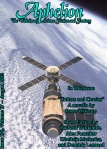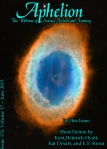From the bushy fringe of the beach, the spider peered at a broad, speckled bonnet with two—just two!—eyes projecting out like polished stones. It watched the crab’s sturdy and spearlike legs traverse boulders of pale sand to within a metre before stopping. The two looked at each other for a time. The crab shuffled a little, rowing the sand around it, then bunched its legs together. It poked the air with a pincer. The spider drew its forelegs closer and shuffled its mouthparts.
The evening cold came and the spider, buffeted and stung by the sea breeze, reluctantly drew itself under a lattice of exposed roots before retreating. The salty wind wasn’t so much as feather’s touch on the crab’s thick exoskeleton; it remained longer till some shrimpy fragrance steered it by the antennae to a nearby rock pool.
That was the third meeting, and the two creatures continued to encounter each other at the edge of the beach. The spider’s thin and delicate legs were irritated by the coarse, crystalline sand. The crab beheld a slender, many-eyed creature crouched in scrubland that was, to such a crustacean, both breathlessly dry and draped with hazards.
Sometime later, the spider, scaling round rocks and leaf litter at the perimeter, came across an empty carapace, broad and speckled. It caught the scent of ants on the silent breeze and spotted one trickling away from the husk as it moved closer. The eyeholes were vacant now. The spider stopped before the shell and remained motionless for hours, as spiders sometimes are.
Finally stirring, it entered the carapace. It extended its legs from this new armour and abruptly dashed toward the surf, limbs motoring, impervious to the scratching of the rubbly sand. At the first touch of seawater its wispy legs contracted as if burned and it tipped and rolled. It overcame this instinct, though, thrust out its limbs once more and skittered upright into the damp. A shelf of popping foam collapsed toward it—met with legs wheeling from the shell like oars from the sides of a galley—but a ripple combed it back on to the shore.
The spider twitched and shook and scissored its mouthparts in a panic to free them of salt. The shell had come loose and lay studded in the wet, fizzing sand. Beads of water like great glass boils cooked sunlight into the arachnid’s dark exterior and it raced to find shelter. A mound rose into view: the towel a network of silent and cooling caves. Peering out, the spider became aware that one of its legs had become detached and was lying already half-buried in the baking grit. At some point the shelter was snatched away and the spider with it. It could only wait, and so it waited, ensconced in the dark, dry folds.
Later it traversed a pavement of cool tiles, seeking the safety of the bathroom’s farthest, dimmest edges. Chlorine deposits smouldered in gutters and divots, but some insect debris indicated the room as a survivable territory. Come darkness, it scaled wall and windowframe and began sketching strands by moonlight across a corner.
Early the next morning, a human entered and approached the web, in the centre of which the spider sat loosely like a badly stitched button. As it loomed closer, the thing’s face resolved itself: the spider couldn’t grasp its orientation, but it had a creature’s instinct for eyes, no matter how few of them or how broad and wet and globular. Somewhere below the eyes, a tract of pink flesh hoisted and blew a shriek across the spider’s body. It was dashing now—away from the web, along the windowsill, seven legs scrambling. A moment later an avalanche of tissue paper descended and the spider was tumbled into a white oblivion.
She placed it carefully on a different window ledge and watched it flee up the side of the frame, into the far corner of the sunroom. Flies showed up more often in here, she thought.






